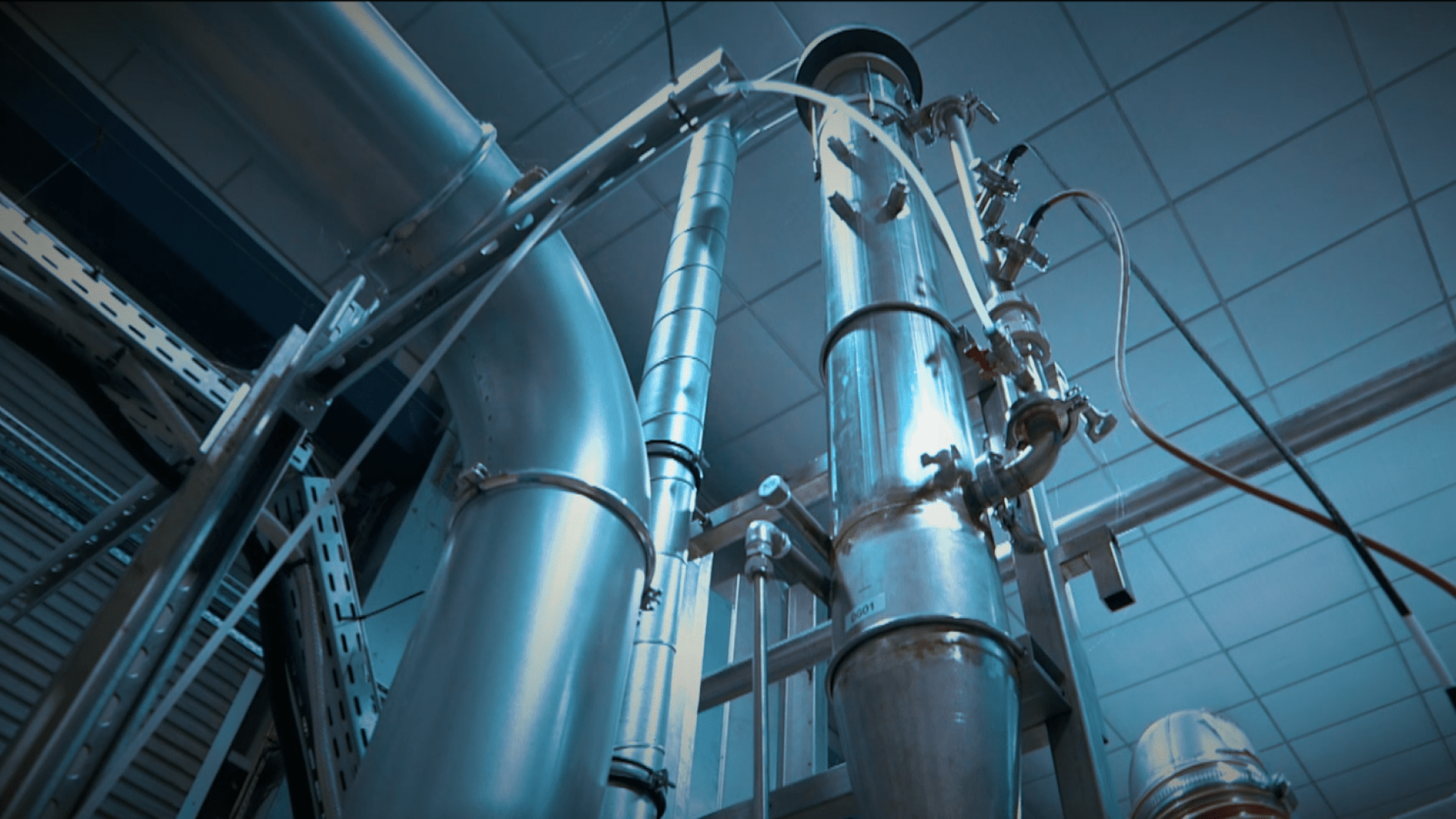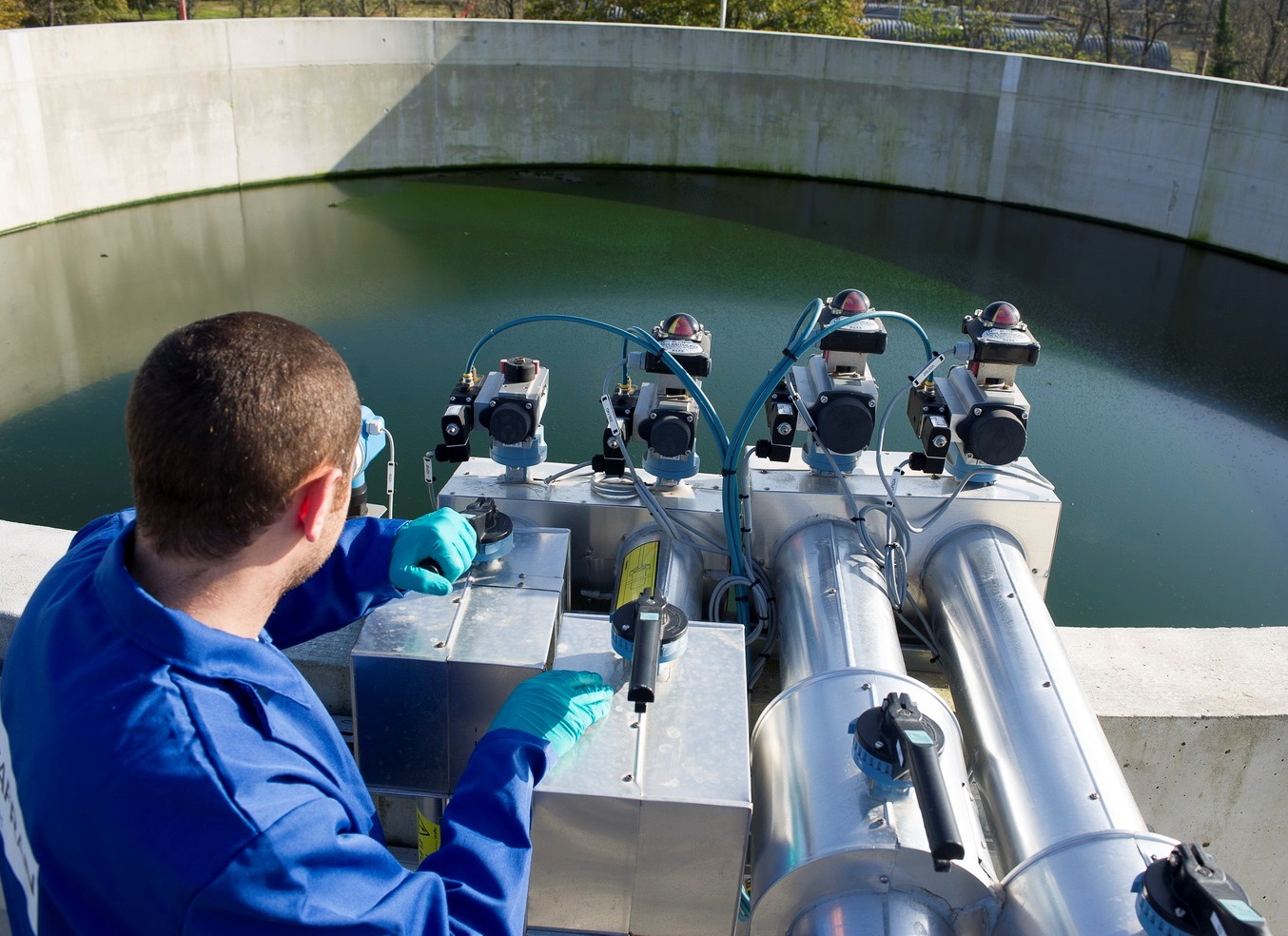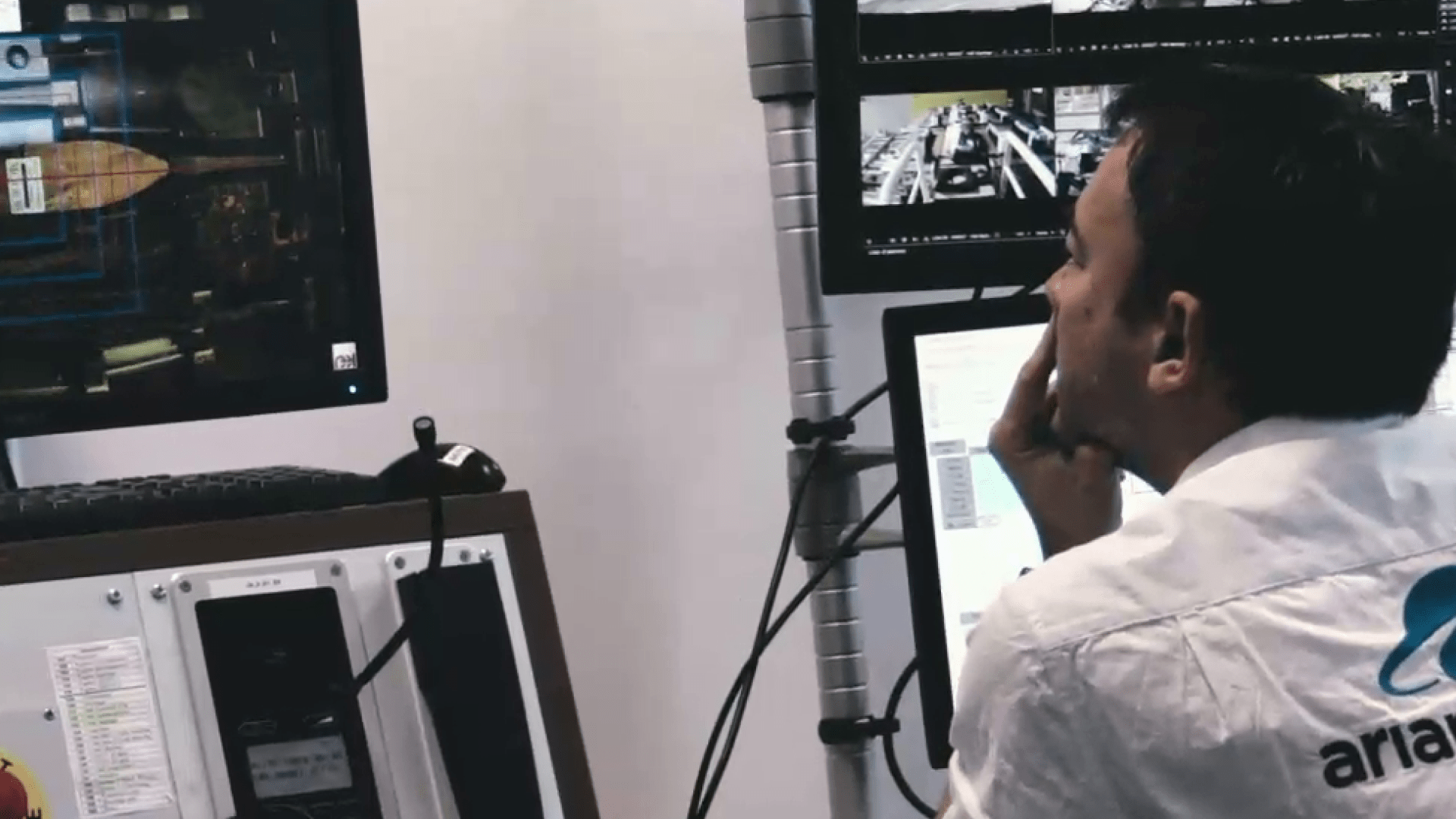Defence system dismantling and decontamination
The dismantling and decontamination of defence systems and the energetic, pyrotechnic and chemical products they contain, as well as legacy chemical weapons, are capabilities that we have developed at ArianeGroup, both for our own purposes and for our government customers. Drawing on our expertise in critical infrastructures and in managing nuclear, radiological, chemical and explosive risks, we have designed eco-responsible processes and turnkey solutions.

Licorne™ biological treatment facility
Propellant is an essential energetic material for the production of solid propulsion engines and their use by civil and military space launchers. An eco-responsible solution for treating propellant waste from engine production and from end-of-life ballistic missile elimination operations is therefore necessary.
The Licorne™ (Ligne Industrielle de Collecte des Objets pyrotechniques et de Réduction Naturelle des Effluents, collection line for pyrotechnic objects and natural reduction of effluents) facility treats propellant through a completely safe biological process, eliminating the main component, ammonium perchlorate, without emitting harmful gases. The chemical compound is extracted by macerating (dissolving) the propellant in water and breaking it down by using specific bacteria. The resulting effluents meet regulatory requirements.
The facility has been in operation for over 10 years at our site in Saint-Médard-en-Jalles (south-west France) and is capable of eliminating 300 tonnes of ammonium perchlorate per year. The French Government’s Defence Procurement Agency (DGA) is the project’s financial partner and the facility’s main customer.
A similar biological facility is installed at Europe’s Spaceport in Kourou (French Guiana) for the treatment of waste ammonium perchlorate from the production of the P120C solid propulsion motors used by the Ariane 6 and Vega-C launchers.

Elixir™ energy waste destruction solution
Energy products are widely used in the space, defence, aviation and automotive industries for various functions such as propulsion, activation, separation or the rapid generation of gas (inflating an airbag, for example).
Dismantling, recycling and remediation operations require safe and clean treatment of a wide range of energy products, particularly nitro compounds such as nitrocellulose and nitroglycerine. To meet this need, ArianeGroup designed Elixir™ with the support of the Nouvelle-Aquitaine region in south-west France and in partnership with Danish start-up Aquarden Technologies.
The Elixir™ technology destroys solid organic pyrotechnic waste, with no polluting emissions, by using the properties of supercritical water. In conditions of extremely high pressure and temperature, at 220 bars and 374°C, water remains liquid but its density is 10 times lower than in normal conditions. In this ‘supercritical’ state, the properties of water resemble those of a gas and make it an excellent solvent of organic compounds. Waste is then broken down to the atomic level, in an almost perfect reaction leaving only slightly acidic wastewater devoid of any organic compounds (depending on the waste being treated) that can be discharged to a treatment plant.
ArianeGroup can provide industrial companies with either a waste treatment service using our own facilities, or turnkey supply and installation of the Elixir™ process at their own site.

Secoia chemical weapon destruction facility
Several tonnes of First World War chemical munitions are discovered every year. Through the DGA, the French Ministry for the Armed Forces asked ArianeGroup to provide and operate a dedicated facility capable of destroying these legacy chemical weapons in a way that is totally safe for both staff and the environment, and complies with all regulations.
This fully automated facility called Secoia (Site d’Élimination de Chargement d’Objets Identifiés Anciens, site for the disposal of identified legacy objects) is located south of the Mailly military base in north-eastern France. It destroys chemical munitions by controlled detonation in a sealed, armoured chamber.
